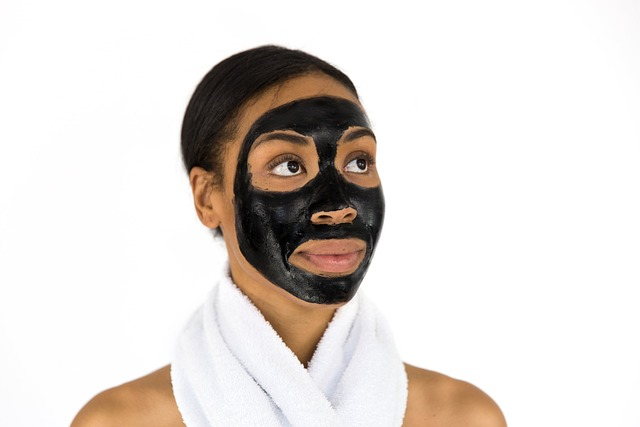Achieving a Healthy Lifestyle: 10 Tips to Live a Longer and Happier Life
Do you want to lead a healthier, more fulfilling life? Achieving a healthy lifestyle is necessary if we want to live longer, feel happier and increase our overall satisfaction with life. This article introduces 10 tips to help you get started. From eating nutritious foods and exercising regularly to getting enough sleep and reducing stress, we’ll explore how to create and maintain a balanced lifestyle.
We will also discuss the importance of maintaining relationships, setting goals, preparing for the future, and developing healthy habits. With these tips, you will be on the path to a longer and joy-filled life.
Get Enough Sleep
Getting enough sleep is essential for good health and wellbeing – but do you know why? Sleep plays an important role in physical and mental health, as well as in overall life expectancy. Studies have shown that adults who get adequate sleep on a regular basis are more likely to be in better health, have a lower risk of developing certain diseases, and enjoy higher energy levels.
Sleep is not just beneficial – it’s vital! A healthy habit like this can make all the difference when it comes to your physical and mental wellbeing. But if you don’t maintain a regular sleep schedule or practice good “sleep hygiene”, the consequences can be serious: lack of sleep can lead to various health problems and significantly affect your daily life. So remember: getting enough restful sleep is key for living a healthier life!
Sleep Hygiene
Sleep hygiene is an essential practice for better sleep quality. To achieve this, you should avoid caffeine and alcohol late in the day, maintain a regular sleep schedule, stay away from screens before bedtime, and exercise regularly. But why is it so important? Well, good sleep hygiene can lead to improved energy levels and emotional well-being – not to mention helping you maintain a healthy weight and reduce your risk of certain diseases. So what are you waiting for? Get practicing!
Sleep and Health
The relationship between sleep and health – is it really that important? Poor sleep quality has been linked to a plethora of health conditions, from high blood pressure to diabetes, heart disease and depression. Research even suggests that poor sleep can reduce life expectancy.
The consequences of inadequate rest are immense: studies show people who suffer from lack of sleep are more likely to experience physical and mental issues. Moreover, there’s an increased risk for developing chronic diseases due to insufficient sleep.
But how does poor sleep affect us during the day? It leads to decreased energy levels and difficulty concentrating – two things no one wants!
Eat Healthy Foods
Eating a healthy diet is essential for a body to be in tip-top shape. Just like a car needs fuel, our bodies need the right kind of food to keep running smoothly. A well-balanced diet can help prevent or manage many chronic diseases, including heart disease, stroke and diabetes – as well as give you an energy boost and lift your mood. Eating plenty of fruits and vegetables, whole grains and lean proteins will provide your body with all the nutrients it needs while keeping calories low. Dairy products should also be included in moderation along with unhealthy foods such as processed foods and fast food, which should only be eaten occasionally.
The importance of nutrition cannot be overstated when it comes to overall health – no amount of physical activity can make up for a poor diet! Eating too much junk food increases the risk of developing chronic illnesses such as cardiovascular disease, plus it can cause sleep disturbances too! On the other hand, eating nutritious meals throughout the day helps maintain energy levels and reduce stress levels – so why not try roasted potatoes seasoned with herbs or stir fry some veggies? Whole grains are also great sources of fiber that should definitely feature on your plate from time to time – think wheat, oats, barley etc.
Poor oral health isn’t just bad news for your teeth but has wider implications for overall health too: bacteria buildup in the mouth can spread through respiratory & digestive tracts weakening immunity & increasing risk factors associated with heart disease & pregnancy complications among others. So don’t forget about brushing those pearly whites twice daily!
Eating Well-Balanced Meals
Eating a well-balanced meal is essential for good health – like the fuel that powers a car, it’s what keeps us running. A healthy meal should include three ounces of whole grains, two cups of fruits and vegetables, and three servings of low-fat dairy products to ensure adequate intake of vitamins, minerals, and other essential nutrients.
For proteins, opt for lean cuts such as fish or chicken breasts, eggs, nuts, or legumes. Eating smaller meals spread out throughout the day can help maintain energy levels while reducing stress and promoting weight loss. To stay healthy, we must limit unhealthy foods such as processed snacks or sugary treats.
The key to a healthier lifestyle? Eat fewer calories, reduce saturated fat and added sugar consumption – plus avoid smoking! All these factors contribute to a lower risk of disease in the long run.
Avoiding Unhealthy Foods
Unhealthy foods, such as processed foods, fast food, and sugary snacks, are like a ticking time bomb – they should be avoided or eaten in moderation. Eating too much of these unhealthy options can lead to weight gain, increased cholesterol levels, and an increased risk of developing chronic diseases such as diabetes and heart disease.
But what healthy eating habits should we practice? Limiting unhealthy food consumption is key; this means avoiding large meals, skipping meals, eating too quickly, and eating at irregular mealtimes. To maintain good health, it’s essential to eat nutrient-rich foods such as fresh or frozen fruits and vegetables, dark leafy greens, broccoli, orange vegetables, fish and legumes.
Small lifestyle changes can be powerful tools for improving our wellbeing – just like a pebble creating ripples in a pond. Avoiding fast food here; adding more nutrient-rich foods there; limiting unhealthy snacks over there – all these small steps can help maintain a healthy weight, reduce the risk of chronic diseases and contribute to living longer lives, according to research in public health.
Exercise Regularly
Exercising regularly is an important part of maintaining a healthy lifestyle. The guidelines for losing weight involve eating fewer calories, exercising more to burn off calories, or both. It is recommended that adults exercise 10 minutes a day, 5 days a week, increasing by 5 or 10 minutes until reaching 30 minutes a day most days of the week. A study found that 11 minutes of moderate-to-vigorous physical activity per day is linked to a decreased risk of death. Comparatively, those who exercised at the same intensity for 2 minutes had poorer health outcomes.
A healthy physical activity level, defined as at least 30 minutes per day of moderate to vigorous activity daily, is essential to achieving and maintaining good health. Physical fitness has also been associated with a reduced risk of heart attacks and strokes. In a non-peer reviewed 2010 study on biking to reduce carbon dioxide emissions in Madison, Wisconsin, it was estimated that biking could reduce carbon dioxide emissions by more than 57,000 tons each year.
Exercise has many physical and mental health benefits that can help improve overall wellbeing. Aerobic exercise, such as running or cycling, strengthens your heart and lungs, burns calories, builds muscle, and reduces stress. Strength training helps build muscle and bone strength, improves balance, and increases coordination. Stretching can help improve flexibility and range of motion, reduce stress, and improve performance. Other forms of exercise, such as yoga and tai chi, can also help with stress relief and relaxation.
Benefits of Exercise
Exercise has many amazing benefits that can help you feel your best. From reducing stress and tension to strengthening muscles, boosting endurance, maintaining a healthy weight, and even improving mood – regular exercise is key for overall wellbeing.
Aerobic exercises like running or cycling are great for strengthening the heart and lungs while burning calories and building muscle. Strength training helps build strength in both bones and muscles as well as improve balance and coordination. Stretching can increase flexibility, reduce stress levels, and enhance performance. Other forms of exercise such as yoga or tai chi are also excellent for relieving stress and promoting relaxation.
In short, exercising regularly has many physical and mental health benefits that can help you live a healthier life!
Finding a Routine That Works for You
Finding a routine that works for you is key when it comes to exercise. What fits your lifestyle and can be done consistently? Walking, running, biking, swimming or even household chores like gardening or mowing the lawn are all great options. Don’t forget to get enough rest and sleep too – sleep problems can lead to health issues!
When creating a routine, consider your fitness goals, physical limitations and interests. Incorporate a variety of activities such as aerobic exercise, strength training and stretching into the mix. And don’t forget about maintaining a healthy diet, reducing stress levels and having an optimistic attitude towards exercise – working with a healthcare professional or personal trainer can help make sure your routine is tailored just for you!
Exercising regularly has many benefits: it reduces risk of diseases, improves overall health, and increases life expectancy. Exercise is essential for living a healthy lifestyle!
Manage Stress
Stress is an unavoidable part of life, and it can have a huge impact on our overall health and wellbeing. When we experience a stressful event, our bodies react with an array of physiological responses – including the release of hormones like cortisol. In small doses, this response is beneficial in dealing with the situation; however, chronic stress can take its toll on both our mental and physical health – leading to weakened immunity, increased risk of heart disease, and other issues.
Fortunately, there are several techniques that can help us manage stress more effectively and lead healthier lifestyles. Meditation and relaxation practices are one way to reduce stress as they help clear the mind while restoring a sense of calmness. Exercise also has its benefits as it boosts endorphins, which provide much needed distraction from stressful situations. Keeping a journal is another great tool for tracking thoughts and feelings while providing an outlet for processing emotions safely.
When stressed out, it’s easy to turn to unhealthy behaviors such as smoking or drinking too much alcohol; these may offer temporary relief but ultimately worsen the emotional/physical effects of stress so should be avoided at all costs! Chronic stress has serious long-term implications too – studies have linked it to depression, obesity & heart disease plus suppressing your immune system making you more vulnerable to illnesses. It’s important then that we recognize signs of mental health issues such as difficulty sleeping or changes in eating patterns & seek professional help if needed!
Identifying Sources of Stress
Identifying the sources of stress in your life – is it a daunting task? It’s the first step to managing it, and recognizing these sources can help us take steps to minimize their impact.
Work, relationships, finances or even news can all be sources of stress. To create an energy management plan that works for you, consider creating a balanced diet and exercise plan, getting adequate sleep and setting realistic goals. Prioritizing tasks and taking breaks are also key elements for success!
Setting boundaries is essential when managing stress – this means respecting our own needs as well as those of others. By doing so we can focus on what matters most without feeling overwhelmed by the demands of life.
Coping With Stress
Once the sources of stress have been identified, it’s essential to develop healthy coping strategies. A great place to start is by making lifestyle changes that can reduce stress levels – like exercising regularly, getting enough sleep and eating a balanced diet. Mindfulness practices such as meditation, deep breathing and journaling can also be beneficial for calming the mind and increasing self-awareness. Taking time out in nature or engaging in activities like yoga are other ways to relax and re-energize.
It’s important to recognize when it’s time for a break too – taking some’me’ time can help reduce stress and improve overall well-being. Self-care activities such as reading a book, having a bath or spending quality time with family & friends are all great ways to unwind from life’s pressures.
Finally, remember that stress is an unavoidable part of life – but learning how to manage it effectively will help us lead healthier & happier lives!
Limit Alcohol Consumption
Alcohol consumption is a major part of many people’s lives, but how much is too much? Excessive alcohol intake can lead to serious health risks like cardiovascular calamity, liver lacerations, cancerous cells and premature death. To keep your body healthy and safe from these issues, it’s important to understand the concept of moderate drinking and the recommended amount for men and women.
Women should sip no more than 5-15 grams per day – that’s one standard-size drink – while men should stick to two drinks or less (5-30 grams). Even moderate consumption has been linked with an increased risk of breast cancer, so it’s best to limit your libations as much as possible.
In addition to limiting alcohol consumption, smoking is a strict no-no! Smoking is associated with lung cancer and other respiratory diseases plus heart disease, stroke and other vascular diseases. Quitting smoking can reduce the risk of developing these health issues, so make sure you stay smoke free for a healthier lifestyle!
Alcohol and Health
Excessive alcohol consumption – is it worth the risk? The Centers for Disease Control and Prevention (CDC) warns that drinking too much increases your chances of developing certain cancers, strokes, and other cardiovascular diseases. Heavy drinking can also lead to liver cirrhosis and other liver diseases, as well as weakened immune systems and mental health issues such as depression and anxiety.
So what’s moderate alcohol intake? Women should stick to 5-15 grams per day; men can have up to 30 grams or two standard-size drinks a day. But even this amount has been linked with increased health risks like breast cancer – so why take the chance? It’s best to limit your alcohol consumption as much as possible.
Alternatives to Alcohol
Reducing alcohol consumption is a must for leading a healthy lifestyle – but what are the alternatives? Activities such as yoga, meditation, tai chi and reading can help reduce stress and improve mental and physical wellbeing. Board games, outdoor activities – these too can be beneficial.
But there’s more! Healthy eating habits, regular physical activity and getting enough sleep are all great alternatives to alcohol that can help reduce drinking while improving overall health. Eating nutritious meals provides essential nutrients while regular exercise helps with cardiovascular health, disease prevention and weight loss. Sleep boosts cognitive function, reduces stress levels and improves wellbeing in general.
By limiting alcohol consumption and replacing it with healthier options we can avoid the risks associated with excessive drinking – so let’s make the switch today for a better tomorrow!
Practice Mindfulness
Mindfulness is an ever-growing trend that can help people lead a healthier life. It’s a form of meditation that encourages being aware and present in the moment, allowing us to gain insight into our emotions, thoughts, and behaviors – enabling us to make better decisions and find balance. But how do we take control of our thoughts and improve our lives?
The first step is creating an exciting vision for the future that inspires you. Then set daily intentions and create achievable goals so you stay focused on your vision. Finally, practice self-awareness by paying attention to your thoughts and feelings – this will keep you on track!
What is Mindfulness?
Mindfulness is a centuries-old practice that helps us gain insight into our emotions, thoughts, and behaviors. It enables us to become more aware of our physical, mental, and emotional states – allowing us to make better decisions and find balance in life.
The practice involves paying attention to the present moment without judgment or attachment. We must let go of expectations and preconceived notions while being open to whatever arises without judgment. By simply observing mindfully without attachment, we can gain insight into our behavior and discover ways to improve our health and well-being.
How to Practice Mindfulness
There are many paths to mindfulness, from meditation and yoga to journaling. Each of these activities can help people become more aware of their thoughts, feelings, and behaviors – allowing them to make better decisions and lead a healthier lifestyle.
Meditation is an effective practice for calming the mind and improving concentration. Taking time each day to meditate can help people gain insight into their behavior and become more mindful.
Yoga combines breath work, postures, and meditation in order to create awareness of the body’s sensations in each pose. This heightened awareness helps cultivate a deeper connection between physical health and mental wellbeing.
Journaling is another great way to practice mindfulness by writing down thoughts and feelings which can reveal triggers or patterns that may be influencing our lives without us realizing it – helping us make better decisions as we go forward.
By incorporating these techniques into our daily routine we can learn how to be more mindful – gain insight into our behavior so that we can live healthier lives with greater clarity of thought!
Have an Attitude of Gratitude
Having an attitude of gratitude – is it just a buzzword or something more? It’s like a warm hug for the soul, an appreciation for all the good things in life. From small everyday joys to larger accomplishments, practicing gratitude can help reduce stress and anxiety by shifting focus away from negative thoughts. It can also improve physical and mental health, increase happiness, and strengthen relationships. So why not take a moment to appreciate what you have?
Benefits of Gratitude
The benefits of gratitude – how can it help us? Research has revealed that those who express more thankfulness boast stronger immune systems, better sleep, and lower levels of depression and anxiety. Cultivating an attitude of appreciation can foster positive emotions like joy and contentment while diminishing negative ones such as jealousy, anger, and frustration. Moreover, practicing gratitude conserves energy by cutting down on negative internal dialogue. It also boosts self-esteem, which affects how we value ourselves. So why not take a moment to appreciate the good in life?
Practicing Gratitude
Practicing gratitude can be a powerful tool to help us reframe our thinking and shift our focus to the positive. It can come in many forms, such as keeping a gratitude journal, expressing gratitude to others, or engaging in acts of kindness.
Writing down what we are thankful for each day is an easy way to take a few moments out of our busy lives and reflect on all that we have. Not only does it help us appreciate the little things more, but it also helps strengthen relationships with those around us.
Expressing gratitude towards others is another great way to practice this skill. Whether it’s giving someone a compliment or simply telling them how much they mean to you – these small gestures can bring joy into their lives and yours too!
Lastly, engaging in acts of kindness is one of the most rewarding ways to practice gratitude. Volunteering for causes closes your heart or helping out friends when they need it most – these actions not only make you feel good about yourself, but also provide purpose and fulfillment in life!
Connect with Others
Connecting with others – is it really that important? Absolutely! Studies have shown that having strong relationships with family, friends, and other people in your life can lead to improved mental health, increased social support, and better overall wellbeing. Surrounding yourself with understanding individuals can provide emotional backing to help manage stress and even strengthen the immune system. It’s worth noting that those with low quality connections are more than twice as likely to suffer from depression compared to those with highest quality bonds.
The Power of Social Support
Talking to friends can be a great way to reduce stress and get emotional support. How often do you catch up with your friends and family? Connecting with others through online communities and social media can provide an opportunity to share experiences, feelings, and build meaningful relationships. And why not go out for group activities – it’s a surefire way to strengthen those bonds!
Ways to Connect
There are many roads to connection – online communities, social media, and in-person activities. Through these avenues, you can find like-minded people with similar interests and share experiences. Social media offers a platform for connecting with people from all walks of life. Meanwhile, group sports, classes or volunteering provide an opportunity to meet new people and build meaningful relationships.
Connecting with others has many rewards – improved mental health, increased social support and overall wellbeing. But remember: it’s essential to set limits around those who drain your energy and focus on building relationships with those who are supportive and understanding.
Take Time for Yourself
Taking time for yourself is like a breath of fresh air in a healthy lifestyle, essential for long-term success. Self-care is the practice of carving out moments to focus on your mental and physical wellbeing – think cooking up nutritious meals, jamming to favorite tunes, going for a stroll, reading books or simply taking some time to relax and breathe.
By making self-care part of your daily routine you can reap its rewards – improved overall wellbeing!
Self-Care
Self-care is like a warm hug for your soul. It’s an important part of life that can help improve mental and physical health, self-esteem, and reduce stress. But why should we take time out of our busy lives to focus on ourselves? Self-care activities range from basic tasks such as getting enough sleep or eating healthy foods, to more complex activities such as mindfulness practices or engaging in creative hobbies. Taking the time to engage in these activities can be like taking a deep breath – it helps us find balance and peace within ourselves.
Making Time for Yourself
Making time for yourself is like a breath of fresh air – essential for long-term success and wellbeing. Taking a break from the hustle and bustle of daily life can help reduce stress, improve physical health, and boost mental clarity. Whether it’s meditation, yoga, creative pursuits or simply taking a few moments to relax and breathe – carving out time for yourself is key.
Additionally, taking regular breaks from work can also help to reduce sleep deprivation and improve overall wellbeing. Making time for oneself is an important part of achieving balance in life; it helps build self-esteem while improving your overall wellbeing. So don’t forget: making time for yourself is essential!
Seek Professional Help When Needed
Achieving a healthy lifestyle is a journey, like climbing a mountain. It requires dedication and commitment to make positive changes that will promote long-term happiness. While it’s possible to do this alone, sometimes seeking professional help can be beneficial. Psychologists, psychiatrists and therapists can provide guidance and support to manage stress and health problems while creating balance between physical, mental, emotional and spiritual elements. Discussing any questions or concerns with a healthcare provider ensures the best outcome for your wellbeing.
In addition to professional help, there are other ways to reduce stress levels and boost your immune system – deep breathing exercises, mindfulness practices or simply taking time out for yourself! Relaxation is key for overall health satisfaction too!
Creating a healthy lifestyle takes effort, but if you feel like you’re struggling on your own, don’t hesitate in seeking professional help – it could be just what you need to get back on track towards achieving success in the long run!
Summary
This article has explored 10 tips to live a longer and happier life while achieving a healthy lifestyle. Starting at the core of one’s well-being with adequate sleep and nutrition, paired with exercise and stress management, are the foundation for leading a balanced life. Additionally, alcohol consumption should be limited and engaging in healthy alternatives instead can help reduce the risks associated with excessive drinking.
Mindfulness and developing an attitude of gratitude can also aid in reducing stress, lead to better mental and physical health, and increase overall happiness. Finally, connecting with others through both online and in-person activities provides emotional support and strengthens relationships, which is vital for achieving a successful lifestyle.
All in all, by taking care of your mind and body, practicing mental health strategies, limiting unhealthy substances, and finding ways to connect with others, we can confidently work towards achieving a healthy lifestyle.
Frequently Asked Questions
What are 10 healthy lifestyles?
The 10 healthy lifestyle habits for living a meaningful life include: eating nutritious foods, exercising regularly, managing stress, getting enough sleep, avoiding negative influences, being mindful of mental health, drinking plenty of water, avoiding drugs and alcohol, practicing self-care, and connecting with loved ones.
Through these positive habits, one can work towards improving their physical and mental well-being.
What are 10 healthy lifestyles?
Making healthy lifestyle choices is a key component to living a long, happy life. The most important healthy habits to practice are to eat a balanced diet, exercise regularly, stay hydrated, limit unhealthy foods and beverages, get enough sleep, reduce stress, and monitor your weight.
Additionally, it’s important to take multivitamin supplements, go easy on alcohol, and minimize sitting and screen time. By incorporating all of these tips, you can live a healthier and happier life.
How do i start living a healthy lifestyle?
Begin your journey to a healthier lifestyle by taking small, actionable steps. Start by eating nourishing meals and avoiding processed foods; get adequate sleep; add physical activity into your day; focus on positive relationships with yourself, family, and friends; reduce sedentary time; and stay away from news overdose.
Doing so will lead to more energy and improved wellbeing.
















